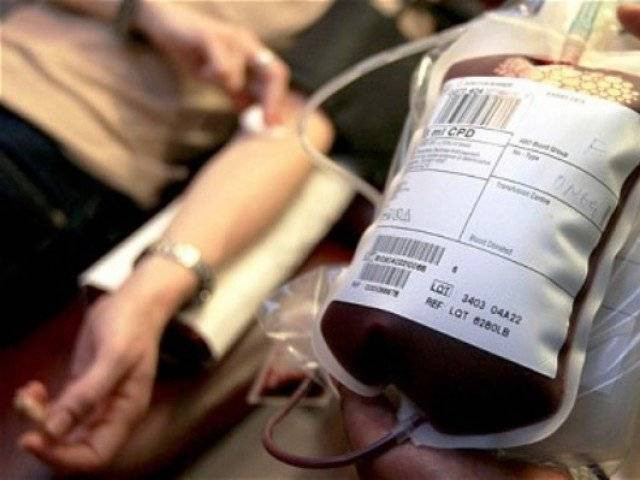PRCS sets up blood donation camp
Deputy speaker says many lives at risk due to blood shortage

The Pakistan Red Crescent Society (PRCS) on Wednesday organised a donation camp in the federal capital to help address a serious shortage of blood amid depleted donations due to the coronavirus pandemic.
National Assembly Deputy Speaker Qasim Khan Suri was the chief guest on the occasion. PRCS Chairman Abrarul Haq and other senior officials were also present at the camp set up in the F-7 Markaz area.
Speaking on the occasion, Deputy Speaker Qasim Khan Suri said thousands of people have lost lives to Covid-19 across the country. “However, even more lives are at risk due to blood shortage, especially of those who are suffering from leukaemia, thalassemia, haemophilia, anaemia or those undergoing critical surgeries or injured in road accidents.”
He welcomed the PRCS initiative of setting up blood camps which, he said, was also in line with the government’s agenda of ensuring the provision of safe blood to every patient as well as those injured in road accidents. He urged all segments of the society to wholeheartedly help the PRCS in this humanitarian cause.
Read more: Blood donated for thalassemia patients
Speaking on the occasion, PRCS Chairman Abrarul Haq said Pakistan had an additional requirement of blood supply because of a high number of thalassemia patients, adding that the challenge had magnified due to lack of blood donors amid the Covid-19 pandemic.
“Estimates suggest that only 28 out of 10,000 people donate blood in Pakistan. Out of these, only 11 per cent of donations are by people who don’t have a friend or family in immediate need,” he said.
“It is estimated that every five minutes, someone is killed or badly injured in a road accident in Pakistan out of which many lose their lives for want of a timely supply of blood,” he lamented.
“According to a Pakistan Thalassemia Centre report, Pakistan has approximately 100,000 patients suffering from the genetic blood disorder. Among other diseases, an estimated 5,000 children with beta-thalassemia are born per year,” he added.
Abrarul Haq said educational institutions and industrial units had been a major source of blood collection and that their closure in days of the pandemic had severely impacted the blood donations. “However, since all schools, universities and other institutions have now reopened, it is time for an urgent intervention to ensure an uninterrupted supply of blood for those whose life depends on regular blood transfusions,” he added.
Published in The Express Tribune, February 4th, 2021.



















COMMENTS
Comments are moderated and generally will be posted if they are on-topic and not abusive.
For more information, please see our Comments FAQ